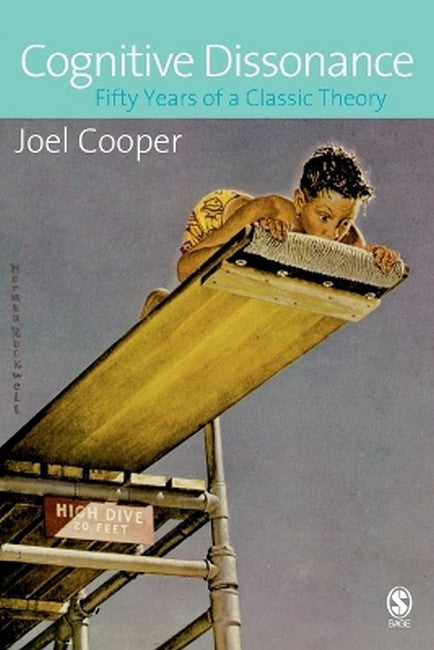Joel Cooper received his B.A. from the City College of New York in 1965 and a Ph.D. from Duke University in 1969. He joined the psychology department faculty at Princeton University in 1969, attaining the rank of full professor in 1978. Professor Cooper's major research focus is on attitudes and attitude change, particularly as they relate to the process of cognitive dissonance. His recent work examines vicarious experiences of dissonance (i.e., feeling dissonance due to the inconsistent behavior of others) and the role of the self in dissonance arousal. Two other areas of active interest are (1) the effect of expert testimony in courts of law, and (2) gender differences in the effectiveness of information technology, particularly among school children.
Request Academic Copy
Please copy the ISBN for submitting review copy form
Description
Cognitive Dissonance In the Beginning Criticism Propels the Theory Forward The Motivational Property of Dissonance Dissonance is not what it used to be The New Look Model of Dissonance The Self-Standards Model and the Emergence of the Self in Dissonance Theory Vicarious Cognitive Dissonance Experiencing Dissonance Through The Actions of Another Culture, Race and Cognitive Dissonance Cognitive Dissonance in Today's World
Cooper (Princeton) does a superb job summarizing research on the concept of cognitive dissonance since it was first elucidated by Leon Festinger in the 1950s...Cooper brings a much-needed historical perspective to cognitive dissonance, and he peppers his discussion with interesting personal anecdotes. Political analysts as well as psychologists will be interested in the specific conditions that elicit cognitive dissonance." -CHOICE -- D.J. Winchester This book is fun to read!...Cooper takes care to delineate those studies that were particularly important in their purpose, particularly clever in their design, and most groundbreaking in their results. He makes a gripping story of the inception and march of progress in what could have been simply a long series of interesting research projects. In doing so, he made me nostalgic for a time when the field of psychology was alive with excitement and overrun with research topics that actually made sense to those outside a narrow specialty and that meant something to the citizenry." -Alan Cheney, PSYCCRITIQUES -- Alan Cheney * PSYCCRITIQUES *

